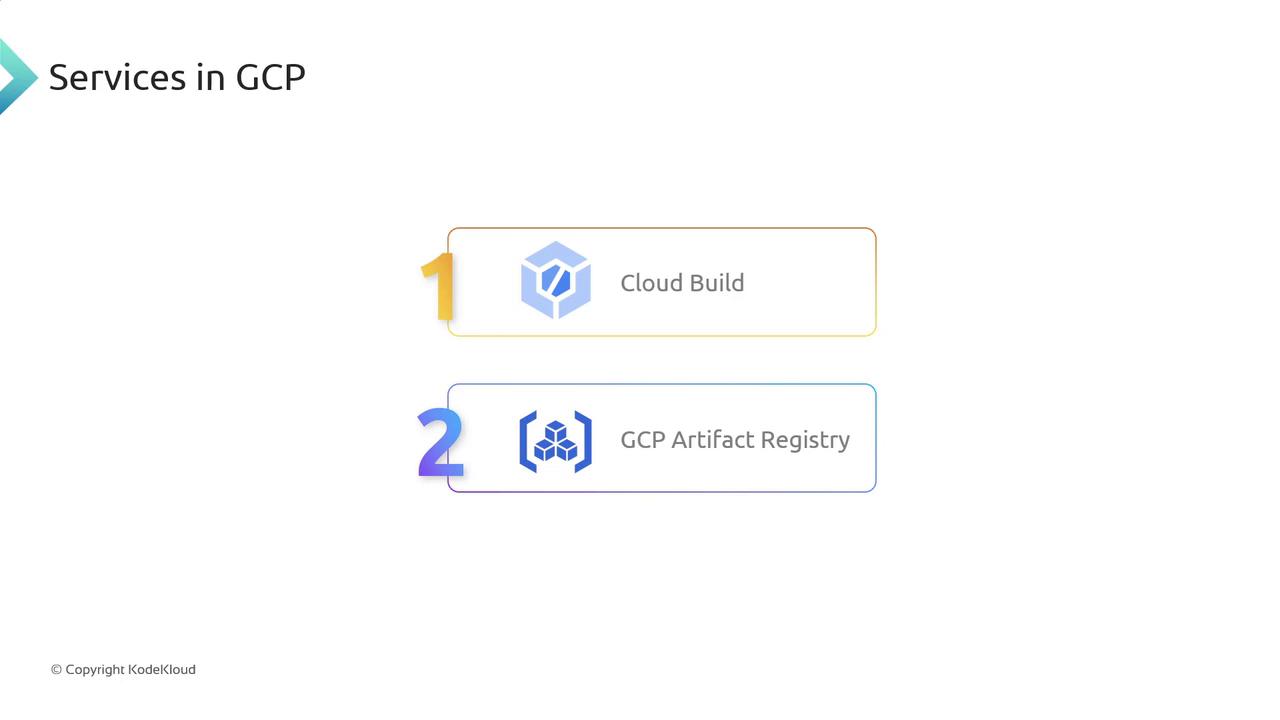Step 1: Select the Right GCP Services
Within GCP, the two core services for building, storing, and deploying containerized applications are:| Service | Purpose | Key Features |
|---|---|---|
| Cloud Build | Continuous Integration & Delivery | Builds Docker images, runs tests, and deploys |
| Artifact Registry | Managed container and artifact repository | Stores Docker images, Helm charts, and binaries |
Cloud Build integrates directly with Cloud Source Repositories, GitHub, and Bitbucket. You can trigger builds automatically on code pushes or pull requests.
Step 2: Visualize the CI/CD Pipeline
Below is a high-level diagram showing how Cloud Build and Artifact Registry work together in a typical pipeline:
Step 3: CI/CD Workflow Breakdown
-
Build & Push
- A Cloud Build trigger fires on commits to your GitHub or Cloud Source Repository.
- Cloud Build executes a build config (
cloudbuild.yaml), packages your application into a Docker image, and pushes it to Artifact Registry.
-
Deploy to GKE
- A second Cloud Build trigger detects the new image in Artifact Registry.
- Cloud Build pulls the image and applies Kubernetes manifests (or Helm chart) to your Google Kubernetes Engine (GKE) cluster.
Ensure that the Cloud Build service account has the
artifactregistry.writer and GKE permissions before running pipelines.Next Steps
Now that we’ve covered the CI/CD services in GCP:- We’ll create the
cloudbuild.yamlconfiguration. - We’ll set up GitHub triggers and IAM roles.
- We’ll define Kubernetes deployment manifests or Helm charts.